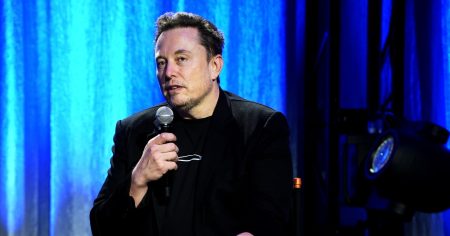Journalist Taylor Lorenz isn’t the first to declare legacy media a dead industry walking. But few voice it with the conviction that she does—and an even more vigorous claim that they know its successor. The future of media, she says, lies in social media influencers and the “creator economy.” Let’s see how the peerless scrivener of influencers describes this revolution—her term—in which an online rabble is storming the tech/media Bastille with blogs, TikToks, DigiTours, and product placements.
“It has radically upended how we’ve understood and interacted with our world. It has demolished traditional barriers and empowered millions who were previously marginalized. It has created vast new sectors of our economy while devastating legacy institutions. It is often dismissed by traditionalists as a vacant fad when it in fact it is the greatest and most disruptive change in modern capitalism.”
In fact? More than private equity, the rise of the tech platforms influencers build on, or the US Supreme Court’s multiple rulings giving corporations individual rights while weakening the rights actual individuals have to hold companies to account? That’s a huge heap of things to justify, and Lorenz doesn’t really try to do it in her new book, Extremely Online. Her long-awaited tome on online influencers and creators—who have genuinely made a difference, though the “empowering millions” part is debatable—is a surprisingly conventional business book. She accurately calls it a “social history of social media.” This is a logical approach, springing from her excellent reporting for The Atlantic, The New York Times, and her current legacy-media employer, The Washington Post.
Lorenz practically invented the influencer beat, consistently clobbering competitors by chronicling the movement’s innovators and wannabes. As one would expect, characters like Julia Allison, Jake Paul, Lonelygirl15, MrBeast, and PewDiePie pop up in Extremely Online. Lorenz expertly delineates the fine points of building a social media persona, and ultimately a business around it: creating an authentic and focused identity; building an audience through a steady, if not exhausting, cadence of clever posts; affiliating with other famous internet personalities; grabbing attention with shocking or overly personal content. And of course, parties help too. While Lorenz stops short of outright endorsing the phenomenon, it’s clear she’s down with the scene. Especially when it comes to making legacy media look clueless. Her observations about how a generation takes these creators more seriously than journalistic warhorses comes with post-touchdown spikes worthy of taunting penalties. (Her loathing for the elite and “misogynist” media is constantly invoked in the book.)
When Lorenz and I get together to discuss her book, I quiz her on the quality of what these revolutionary creators are churning out. Does she think that influencer media is better than what came before?
“I think it’s certainly superior in a lot of ways,” she tells me. “The traditional media is very strict in terms of format. They just often don’t present content in a way that people want to consume it.” Then she throws a bone to her employer. “There’s a lot of great content that comes out from The Washington Post. It’s sort of locked away in articles that people will never be able to read or will never have time to read.”
I had never thought of “articles” as a means of locking content away rather than distributing it. But Lorenz breezes past my objection. “People don’t always prefer to read articles,” she says. “People want more multimedia content. There’s more and more ways to consume information, especially as each of these platforms adds new features. Now you can get TikTok, Reels, YouTube videos, livestreams … The creator ecosystem is just providing more content in a wider variety of formats.”
Read the full article here









